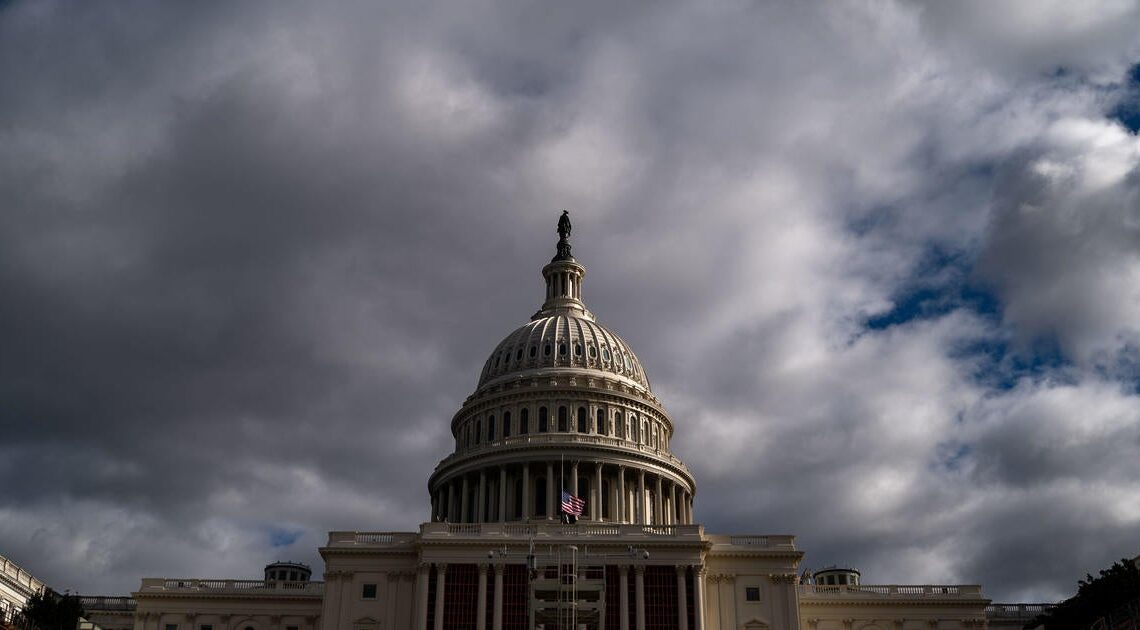
Congress counts electoral votes tomorrow. What to know as lawmakers finalize the 2024 presidential election results.
5. January 2025[ad_1]
Washington — The House and Senate will convene Monday to certify President-elect Donald Trump’s victory in the 2024 election.
It comes four years after a violent mob of Trump supporters attacked the Capitol to prevent Congress from affirming President Biden’s win. There appear to be no plans by Democrats to stand in the way of certifying Trump’s win.
Here’s what to expect this time.
How does Congress count the presidential election results?
Senators and members of the House will meet in a joint session, with Vice President Kamala Harris presiding, to tally the electoral votes from the 50 states and the District of Columbia.
The vice president will read aloud the electoral votes, and then Congress counts each state’s results to affirm Trump’s victory.
The process is typically a ceremonial step before a president is inaugurated on Jan. 20.
Does Congress always count results on Jan. 6 following presidential elections?
Congress is required by law to count the electoral votes on Jan. 6 after each presidential election. However, the date has been temporarily changed by law when Jan. 6 fell on a weekend. In 2013, Congress affirmed that President Barack Obama won the election on Jan. 4, rather than on Jan. 6, which was a Sunday.
What is the Electoral Count Reform Act, and what’s different about Jan. 6 this time?
After the Capitol riot in 2021, Congress moved to reform the Electoral Count Act — a 1887 law that governed the counting of electoral votes — to prevent another effort to overturn the results of a presidential election.
Congress passed the Electoral Count Reform Act in 2022, which clarified that the vice president’s role in presiding over the joint session of Congress is ceremonial. It also made it more difficult for members of Congress to challenge a state’s electors by raising the threshold to 20% of members of each chamber. Previously, just one member of the House and one senator were needed to raise an objection.
Following Trump’s defeat in the 2020 election, he and his allies fueled unfounded allegations of fraud and argued that Vice President Mike Pence had the authority to accept or reject electoral votes. Pence denied he had such authority.
As Congress was tallying the votes in 2021, Rep. Paul Gosar, an Arizona Republican, joined Sen. Ted Cruz, a Texas Republican, to object to Mr. Biden’s votes from Arizona.
The joint session was then suspended and the House and Senate separately debated the objection. The process was abruptly interrupted as a violent mob of protesters made their way into the building after Trump urged them to march to the Capitol.
Hours later, after rioters were cleared from the building, both chambers voted to reject the objection that would have thrown out Arizona’s electoral votes for Mr. Biden. The House and Senate then reconvened in a joint session to continue the count. They later were forced to split and debate another objection to Pennsylvania’s results, which was brought by Republican Rep. Scott Perry of Pennsylvania and Republican Sen. Josh Hawley of Missouri. Both chambers also rejected the attempt to throw out the state’s votes for Mr. Biden.
What happens if a member of Congress objects to the electoral votes?
This time, it will be nothing more than a complaint. In the last presidential election, a member from each chamber needed to object to the count to force lawmakers to debate and vote on whether to accept or reject a state’s results. The Electoral Reform Act, passed by Congress in 2022, raised the threshold to one-fifth of members in each chamber.
[ad_2]
Source link